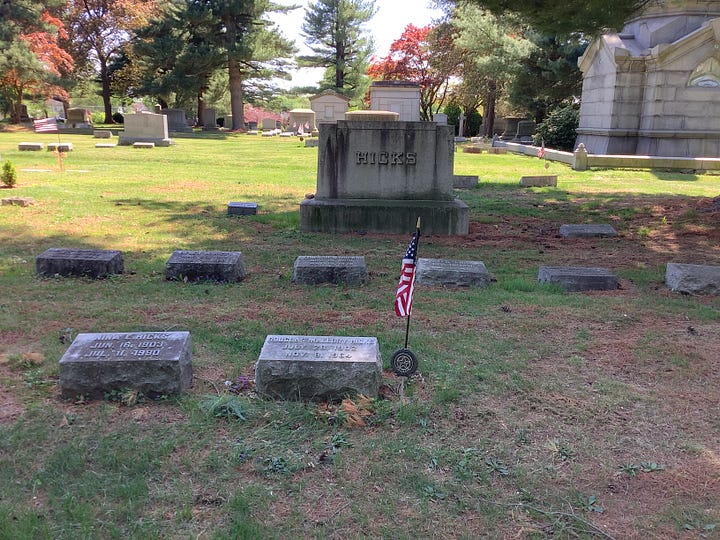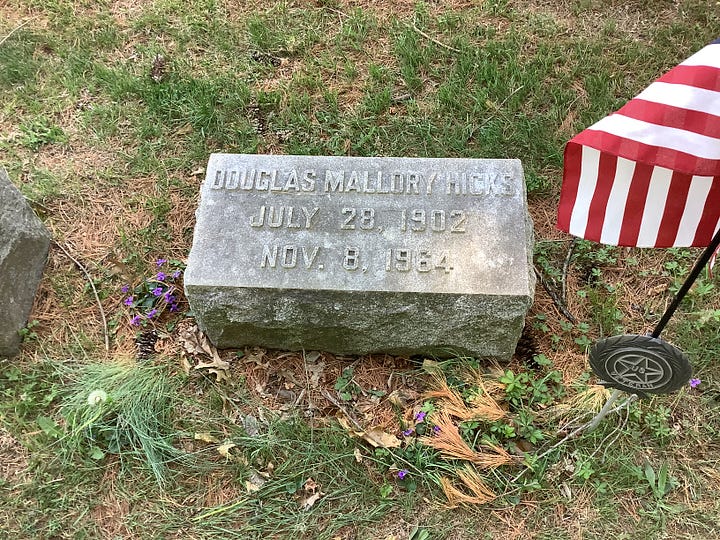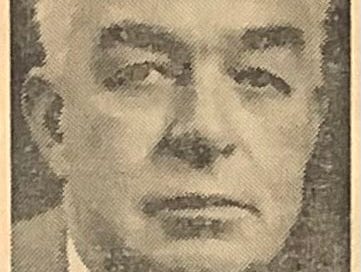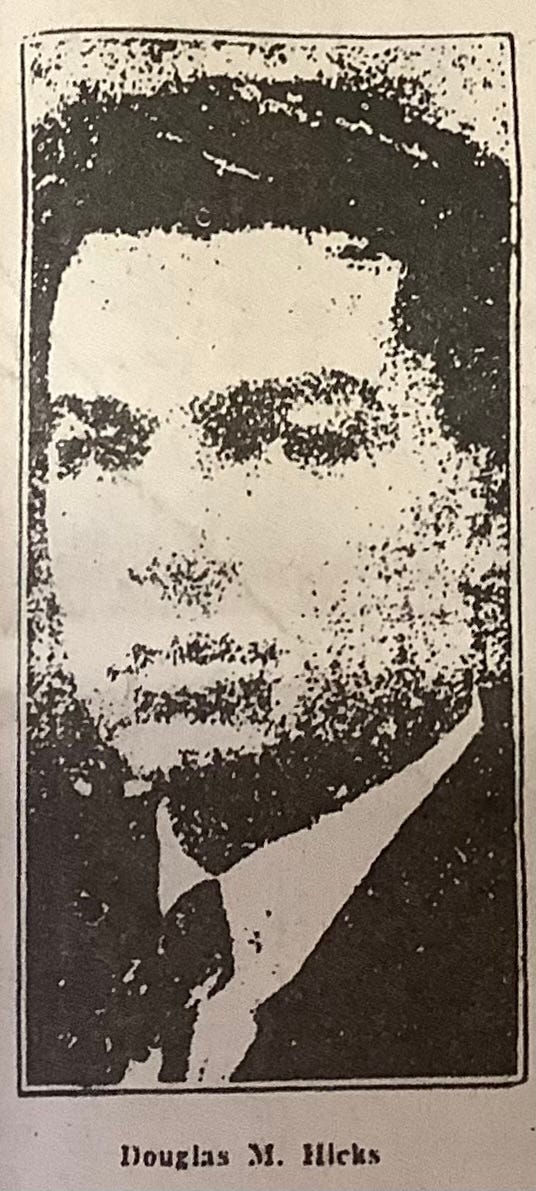This weekend, on Saturday, May 10, Elmwood is excited to once again be hosting Echoes of Valor: Personal Stories of World War II, our walking tour telling the stories of those who served in the conflict, at 2 PM. One of our most popular tours, it’s certain to be a fitting way to get ready for Memorial Day later this month. In honor of this occasion, I am pleased to share with you all the story of Douglas Mallory Hicks, a very well-respected member of the New Brunswick community, and one with a truly remarkable service history.
Douglas Mallory Hicks was born in New Brunswick on July 28th, 1902, the son of Judge Edward W. Hicks and his wife Helen. He attended public school, graduating from New Brunswick High School and then attended Rutgers College, graduating in 1923 with honors. He would then spend a year as an instructor in the English department at Rutgers. Simultaneously, beginning in 1921 and continuing until his graduation in 1924, Hicks studied law at New Jersey Law School; it was unsurprising to those that knew him that he would follow his father into law.
In February of 1924, prior to his graduation, Hicks passed the bar and began practicing as an attorney. He would be admitted as a counselor and master in chancery in 1927. Hicks would also serve in the New Jersey Assembly, being elected in 1924 and reelected in 1925, and would be appointed as a United States Commissioner for the District of New Jersey in July of 1926. He would resign this post on the first day of 1928 so he could accept an appointment as an assistant United States Attorney.
During World War II, Hicks would serve in the Navy from 1941 until 1946. During his service he would first be part of Naval Intelligence, and would then be the commanding captain of landing ships in the Euro-African Theater. Landing ships were very important for the invasions of Axis controlled territory. For example, the ships that troops departed from at the landings of Normandy on D-Day all arrived via landing ships. Needless to say, Hicks, in command of one of these vessels, served a vital role in enacting these military plans, and one that put him at great risk.
Eventually, in the last few years of the war, he would be a captain of troop transport ships in the Pacific Theater, another vital role that was important in fighting the Japanese. It was clear that Hicks must have been well trusted, as he was given many important responsibilities during his service. He would end his service with seven decorations and medals, which he earned serving in both major theaters of conflict. It wasn’t common for a service member to be active in multiple theaters, even a decorated Naval Officer such as Hicks. After a colorful military career that spanned the length of the conflict, he would retire with the rank of Commander.
After the war, Hicks would return to practice law as part of the law firm of Hicks, Kulthau, Nagle and Stroumtsos. In addition to his regular legal work, he would be admitted to the bar of the United States Supreme Court in 1951. He was a member of the New Brunswick, Middlesex County, New Jersey, and American bar associations, and would serve as President of the New Jersey Bar Association for 1960 and 1961. He was also a member of the Federal Bar Association of New York, New Jersey and Connecticut. Additionally, he was a director of the Peoples National Bank.


He would remain active in the community, serving as a President of the New Brunswick Rotary Club and as President of the Raritan Valley Chapter of the Sons of the American Revolution, and was Vice President of the New Brunswick Junior Chamber of Commerce. Additionally, he was a member of New Brunswick Lodge 324 of the Benevolent and Protective Order of Elks, Newark Athletic Club, Beta Theta Pi fraternity, and member and past noble grand of New Brunswick Lodge 6 of the International Order of Odd Fellows.
Douglas Hicks would pass away at the age of 62 in November of 1964. He left behind a wife, Nina Leaf Hicks, two sons, Douglas M. Hicks Jr. and J. Robert Hicks, a daughter, Mallory Hicks Garrison, as well as four grandchildren. His passing did get the attention of some newspapers outside of New Jersey; this is hardly surprising, as he had such an interesting and colorful career both before and after the Second World War. From serving as a U.S. Attorney, a state legislator, to later serving as a lawyer and long standing pillar of the community, and a World War II veteran who served in both Europe and the Pacific, Commander Douglas Mallory Hicks lived quite a colorful life, a life certainly worth remembering.
Sources:
“Douglas Hicks, 62, Lawyer and Former Assemblyman, Dies.” The Daily Home News, November 9, 1964.
“Douglas Hicks, 62, Lawyer in Jersey.” The New York Times, November 9, 1964. https://www.nytimes.com/1964/11/09/archives/douglas-hicks-62-lawyer-in-jersey.html.
“Hicks is appointed U.S. Assistant Attorney.” Perth Amboy Evening News, January 31, 1928.




